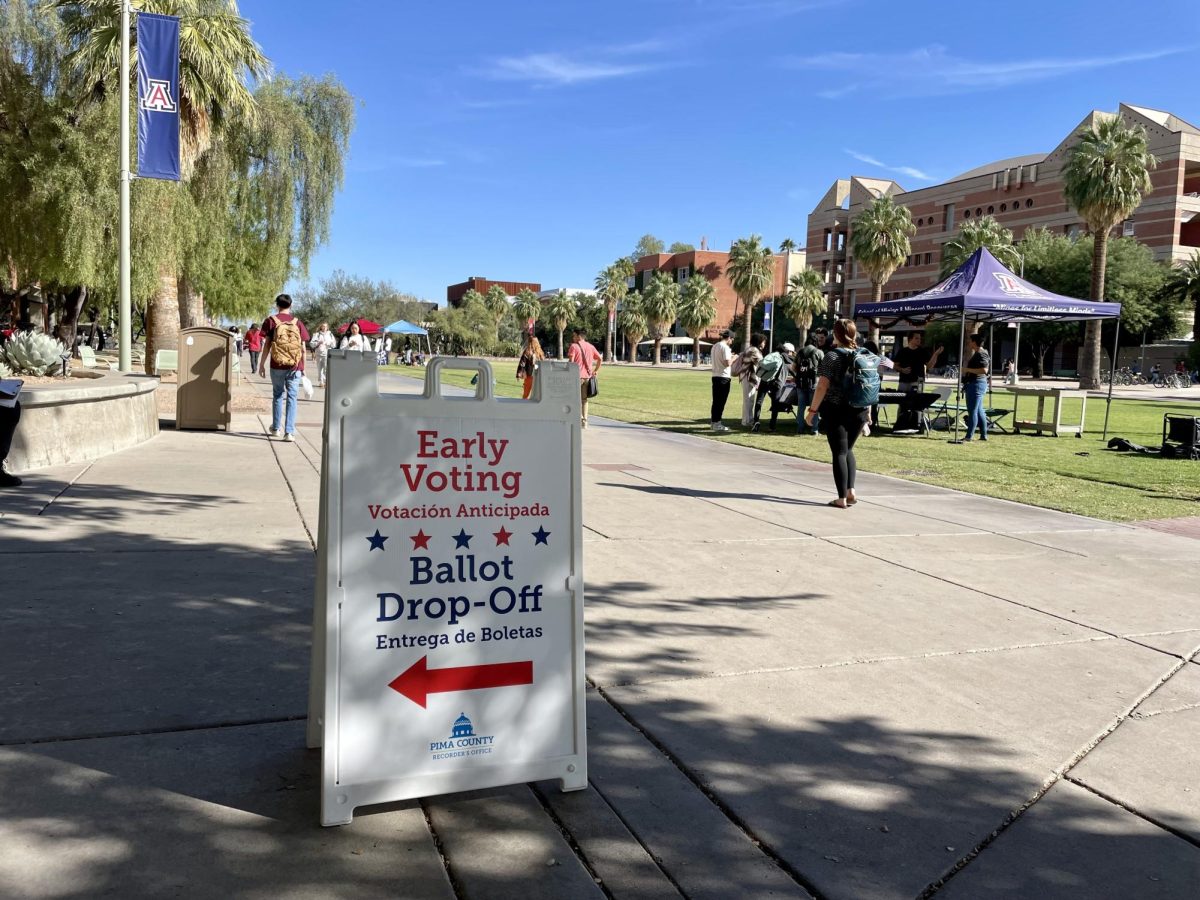At an Arizona Board of Regents meeting on Feb. 14, 2025, the University of Arizona was approved to begin the process of offering four new degree programs: a Bachelor of Arts in Public Relations, a Bachelor of Science in Pharmacology and Toxicology, a Master of Science in AI for Business and a Masters of Education in School Counseling.
The new programs reflect the characteristics of the emerging workforce, students’ interests and the increasing national demand for new skills taught at the college level.
Many of these majors are brand new to the university, but a bachelor’s in public relations comes from an existing minor in public relations.
The change comes in response to a growing number of students pursuing the minor and a broader shift toward vocational training, according to Chris Segrin, head of the Department of Communication.
“By that, I mean training for a specific industry. Whereas in times in the past, especially like in the College of Humanities or College of Social and Behavioral Sciences, you would often take a major, but the major wasn’t preparing you for a specific job,” Segrin said. “It just seems that that version of a university education is very popular today compared to 15 years ago.”
According to Segrin, the public relations minor has around 350 students enrolled, and he imagines the major will bring in around 500 students.
The upcoming steps are getting teachers for the classes and deciding what the new courses will look like. Segrin is unsure of the exact date but hopes to have the program rolling by the spring or fall of 2026.
Segrin says interested students should check the Department of Communication website for updates.
On the contrary, the bachelor’s in pharmacology and toxicology will be a brand-new program in the College of Pharmacy. Currently, the college offers only one major for undergraduate students: a Bachelor of Science in pharmaceutical sciences.
According to Jennifer Schnellmann, director of undergraduate studies at the College of Pharmacy, the current degree in Pharmaceutical Sciences is primarily a pathway to medical school. However, she has noticed an increased interest in students wanting to pursue toxicology.
This led Schnellmann to want to pursue developing a new major.
“I would create an elective in toxicology, and it would fill up. I thought, ‘Oh, okay, they care about this’,” Schnellmann said.
Schnellmann also discussed the advantage students gain by learning toxicology at the undergraduate level before entering medical school.
“Toxicology gets people excited. They’re never going to see it in med school or pharmacy school. So it’s super special as background that you go into medical school already knowing [toxicology],” Schnellmann said. “That’s nuts. Nobody does that.”
According to Niche, 26 universities in the United States offer this degree. UA would join a growing number of schools offering this to students.
The major will also be offered as a minor for students nearing the end of their undergraduate careers who want to take extra toxicology courses but do not want to start their degree from scratch.
Schnellmann said the program will launch this fall and that those interested should contact advisors after spring break.
Another new program offered through the Eller Department of Management Information Systems is a master’s program in AI in business.
According to Susan Brown, head of the Department of Management Information Systems, the program will include learning about the ethical uses of AI, AI governance and regulatory compliance.
“We’re going to see jobs change as a result of AI, and people are going to learn how to work alongside AI in a different way than we’ve done in the past. And this program is for people who understand technology and want to be at the forefront of using AI,” Brown said.
Brown also recognizes that some people are getting used to AI, but may still be wary of its potential uses.
“Everybody’s going through growing pains right now. We’re all trying to figure out what’s the best way to use this,” Brown said. “You start thinking about, we don’t want to diminish the value of the human and I think that’s [what] people are afraid of.”
By implementing this program, UA will again be among the first schools in the country to create an AI-focused program. Currently, 34 schools, including ASU, offer a program similar to this.
The last program is a Master of Education in school counseling, which will replace the current Master of Arts in educational psychology.
According to Lia Falco, an associate professor of counseling in the educational psychology department at the College of Education, this program aims to shift the focus on what is taught.
“We wanted to redesign the curriculum and make it a stand alone degree program so that we could focus the training, preparation and coursework for practitioners who will specialize in working with children and adolescents in school settings,” Falco said.
The program will likely be available in fall of 2025. Enrollees will take courses for school counselors and learn educational psychology.
According to Falco, Arizona, specifically Tucson, is in high demand for school counselors. She says that there are 700 K-12 students for every counselor in Arizona. The goal of the program is to prepare counselors to fill these positions.
Northern Arizona University also offers the program, but on a 60 credit hour track. UA is offering a 48-credit program to help counselors get jobs quicker.
“Because it’s 48 credit hours, it’s a little bit more streamlined compared to the 60 credit hour program that’s become a little bit more fashionable as programs align with mental health counseling,” Falco said. “We’re going to be able to matriculate students quicker and get them out the door and into the job market a little bit faster.”
Interested students can check the pages for the departments the degrees are in for more upcoming information or reach out to advisors.
Follow the Daily Wildcat on Instagram and Twitter/X











